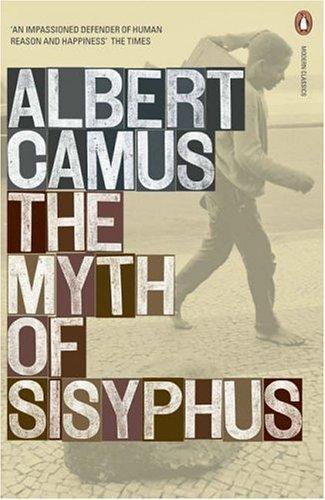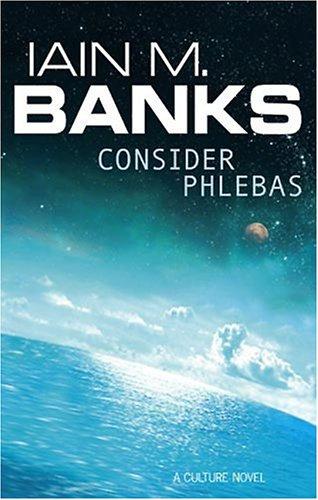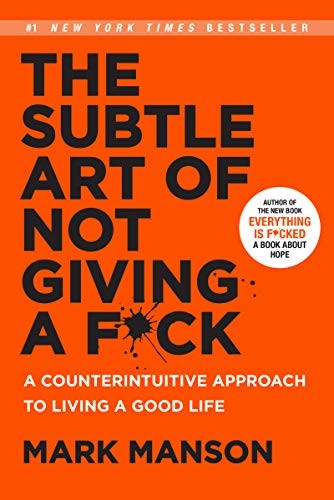Bithive rated The Myth of Sisyphus: 5 stars

The Myth of Sisyphus by Albert Camus
The Myth of Sisyphus (French: Le mythe de Sisyphe) is a 1942 philosophical essay by Albert Camus. Influenced by philosophers …
I like Sci-fi. I am also working on my personal hypertext inside my head and follow down trails of books.
This link opens in a pop-up window
35% complete! Bithive has read 7 of 20 books.

The Myth of Sisyphus (French: Le mythe de Sisyphe) is a 1942 philosophical essay by Albert Camus. Influenced by philosophers …

The Myth of Sisyphus (French: Le mythe de Sisyphe) is a 1942 philosophical essay by Albert Camus. Influenced by philosophers …

Consider Phlebas is perhaps one of the lesser-known, but nevertheless the first, of the revelationary late Iain M. Banks' science …
"The Subtle Art of Not Giving a F*ck" by Mark Manson starts out with a plethora of expletives. Understandably, he has the F-word in the title and needs to fulfill his marketing promise. The book is relatively short and begins with some Stoic wisdom that anyone who has read "Meditations" by Marcus Aurelius or "The Enchiridion" might already be familiar with. While not necessarily bad, it can be a good entry point into the topic for someone who finds the previously mentioned books dull.
The second part of the book focuses on values and how pursuing the wrong ones can lead to suffering. I found the anecdote about the musician who later formed Megadeth most insightful: after being thrown out of his band, he vowed to become better than his former colleagues and founded Megadeth. Although he became incredibly popular, he never achieved his goal since he was thrown out …
"The Subtle Art of Not Giving a F*ck" by Mark Manson starts out with a plethora of expletives. Understandably, he has the F-word in the title and needs to fulfill his marketing promise. The book is relatively short and begins with some Stoic wisdom that anyone who has read "Meditations" by Marcus Aurelius or "The Enchiridion" might already be familiar with. While not necessarily bad, it can be a good entry point into the topic for someone who finds the previously mentioned books dull.
The second part of the book focuses on values and how pursuing the wrong ones can lead to suffering. I found the anecdote about the musician who later formed Megadeth most insightful: after being thrown out of his band, he vowed to become better than his former colleagues and founded Megadeth. Although he became incredibly popular, he never achieved his goal since he was thrown out of Metallica, leading to a sense of bitterness and unfulfillment.
In the last section, there is a form of redemption arc. Mark Manson, known within the manosphere, has written another book called "Models," in which he shares his personal pickup strategies. Having settled down, he now attempts to reconcile his former lifestyle with his new one. The book still contains several red pill concepts but avoids using terms like frame and alpha, instead explaining the concepts differently.
So, does Manson actually deliver? Yes, indeed. The book offers valuable insights, and if you are unfamiliar with the concept of Stoicism, or as he refers to it, "not giving a f*ck," then it serves as an excellent entry point. For those familiar with the concept, it drives the point home using modern vocabulary.

In this generation-defining self-help guide, a superstar blogger cuts through the crap to show us how to stop trying to …

In this generation-defining self-help guide, a superstar blogger cuts through the crap to show us how to stop trying to …

Born a slave and lamed by his master, Epictetus studied Stoic philosophy while in captivity. Once freed, he survived Domitian’s …